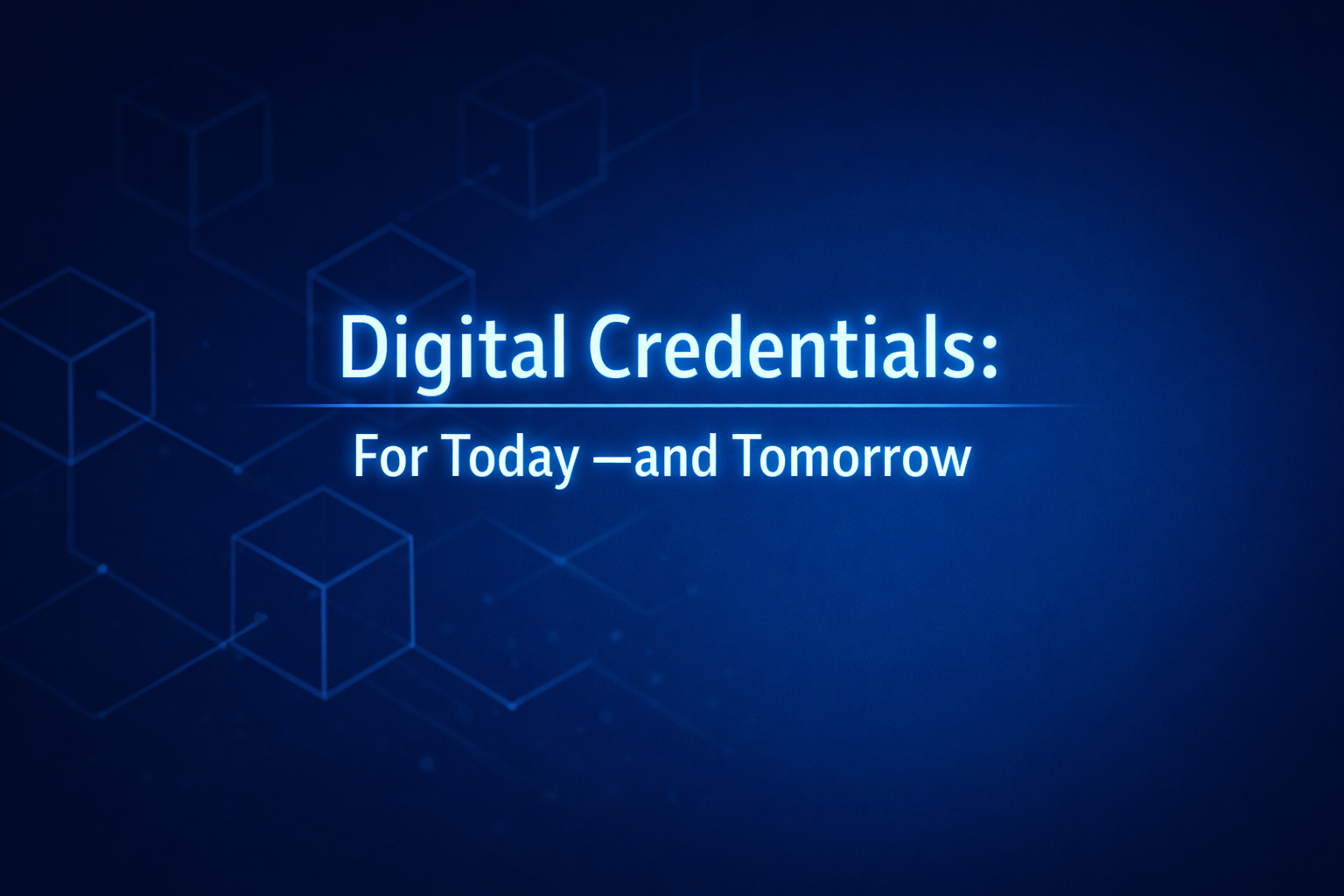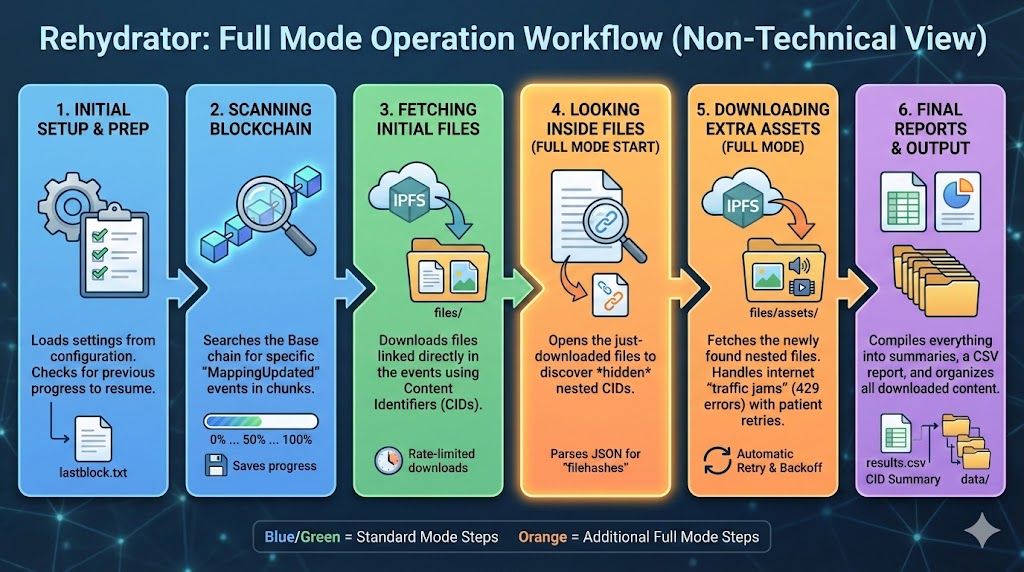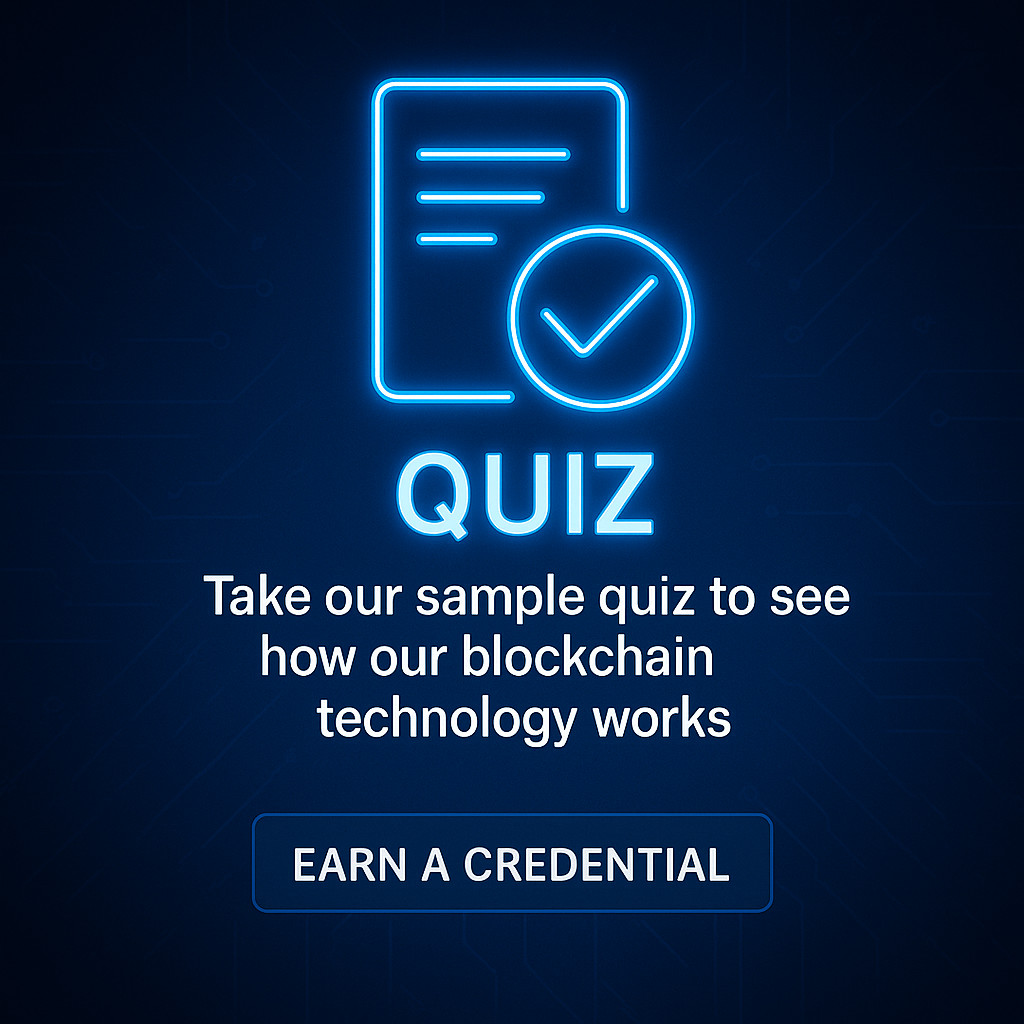by Sol Nasisi
Share
by Sol Nasisi

In an increasingly digital and global academic landscape, universities are being called upon to modernize the way they issue and manage academic records. Traditional methods for issuing diplomas, transcripts, and certifications are paper-based, time-consuming, and susceptible to loss, fraud, and inefficiencies. Enter blockchain technology—a decentralized and secure ledger system that offers an innovative solution for issuing, storing, and verifying educational credentials. For universities, blockchain-based credentials present a transformative opportunity to improve efficiency, ensure authenticity, and enhance student mobility in a digital-first world.
1. Fraud Prevention and Increased Trust
One of the most compelling advantages of blockchain-based credentials is their immunity to tampering. Once a credential is recorded on a blockchain, it cannot be altered without consensus from the entire network, making fraud practically impossible. This ensures that diplomas, transcripts, badges, and micro-credentials are authentic and verifiable. For universities, this builds institutional credibility. For employers and other academic institutions, it means no longer having to second-guess the authenticity of a credential.
Credential fraud is a pervasive issue. According to the World Education Services (WES), thousands of fake degrees circulate annually, with diploma mills taking advantage of loopholes in verification systems. Blockchain eliminates this risk by offering real-time, cryptographically secure verification that does not depend on trust in a third party.
2. Streamlined Verification and Administrative Efficiency
Traditionally, verifying a student’s credentials involves requesting official documents from registrars, a process that can take days or weeks, especially for international students. With blockchain-based credentials, verification can be completed instantly with just a link or QR code. This dramatically reduces administrative burdens on university staff, saving time and resources while improving service to students and external stakeholders.
Blockchain systems also support interoperability, meaning credentials can be accessed and validated across systems and borders. This is particularly valuable in global education and employment markets where students often seek jobs or further education in different countries.
3. Empowering Lifelong Learning and Micro-Credentials
The education landscape is shifting from a once-and-done degree model to a lifelong learning approach. More learners are now accumulating knowledge through online courses, boot camps, professional development seminars, and micro-credential programs. However, these smaller achievements often go unrecognized in formal resumes or transcripts.
Blockchain technology supports the issuance of secure, verifiable micro-credentials and digital badges. These can be shared on professional platforms like LinkedIn or digital wallets, allowing students to showcase a full and dynamic picture of their learning journey. This flexibility empowers universities to provide modular, stackable learning experiences and track learning outcomes over time.
By issuing micro-credentials on the blockchain, universities can also more effectively partner with industry to align academic offerings with workforce needs. For example, a university might offer blockchain-verified credentials in cybersecurity or data analytics that directly map to in-demand skills, increasing graduate employability.
4. Student Ownership and Portability
A fundamental principle of blockchain is decentralization. When credentials are issued on a blockchain, they reside in a public ledger, easily accessible by the student rather than being stored only in university databases. This grants students full control and access to their academic records for life.
This model is particularly advantageous for students from conflict zones or areas where educational infrastructure is at risk. Blockchain provides an immutable backup of credentials that can follow students across borders, enabling them to prove their education even if physical records are lost or inaccessible.
Additionally, portability means students can seamlessly transfer credits between institutions, reducing friction in pathways like dual degrees, transfer programs, or study abroad initiatives.
5. Cost Savings and Sustainability
Issuing paper diplomas and transcripts, managing registrar services, and responding to third-party verification requests all come with significant operational costs. Blockchain-based systems, once implemented, can reduce or eliminate many of these expenses. With automation and self-verifying documents, universities can operate more efficiently and sustainably, reducing paper waste and carbon footprints.
Some universities, such as MIT and the University of Melbourne, are already pioneering the issuance of blockchain credentials. These early adopters report improved efficiency and student satisfaction, paving the way for wider adoption across higher education.
6. Future-Proofing the Institution
As artificial intelligence, remote work, and globalization reshape the labor market, the ability to quickly and credibly prove one’s qualifications will only grow in importance. Blockchain credentials future-proof universities by ensuring their graduates are equipped with credentials that are instantly verifiable and globally portable.
Moreover, as blockchain adoption expands into other sectors—such as healthcare, finance, and supply chains—students who graduate from institutions that embrace this technology gain familiarity with a key infrastructure of the future economy.
Conclusion
Universities stand to benefit immensely from adopting blockchain-based credentials. From fraud prevention and administrative efficiency to student empowerment and global mobility, blockchain offers a secure and modern way to manage academic records. As the demand for trustworthy, digital-first credentials grows, institutions that invest in this innovation will not only enhance their own reputations but also better serve their students in a rapidly evolving world.




